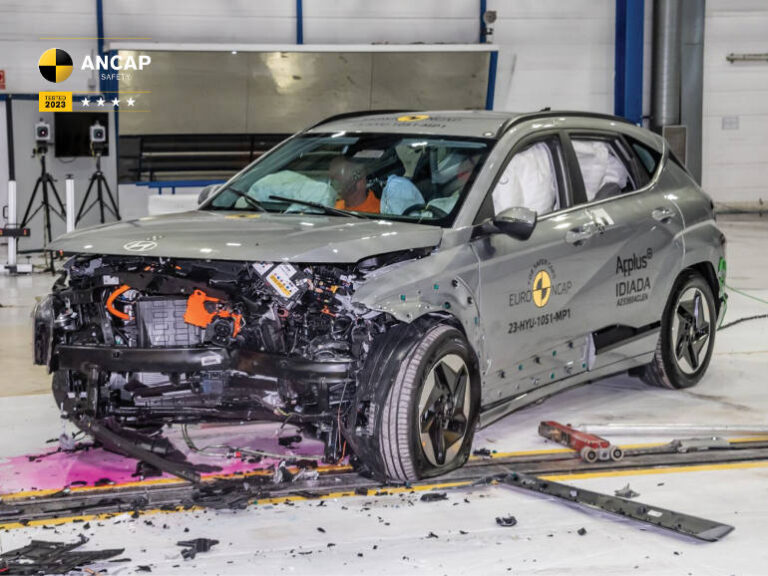The latest model Hyundai Kona was launched in June 2023 and this month the results of the ANCAP testing were released which might cause Fleet Managers to question their fleet safety policies, and the requirement for an ANCAP five star vehicle.
It was assessed against ANCAP’s current (2023-2025) protocol which has stricter requirements in some areas compared to the previous protocols for new vehicles tested in 2022.
Best practice procurement suggests fleets should be buying the safest cars available. However in actual practice organisations use the ANCAP rating system as a low cost way to implement fleet safety.
This became evident last year when the ANCAP ratings expired on several popular fleet models yet Fleet Managers kept buying them. And a quick audit of most fleets will find older models which were once five star rated but have been replaced by newer models with an updated ANCAP rating.
So it’s important that Fleet Managers understand the ANCAP rating system under the current protocols and use a minimum ANCAP star rating combined with a broader fleet safety policy.
The four-star safety rating applies to petrol, hybrid, and electric variants of the Hyundai Kona small SUV, with mixed levels of physical occupant protection, pedestrian protection and collision avoidance capability demonstrated in ANCAP’s assessment.
Performance of the Kona in destructive crash tests saw mixed results, with maximum points awarded for protection of the driver in the side impact and oblique pole tests. Protection of the driver chest in the full width frontal test was assessed as Weak. The driver dummy was also observed to slip beneath the lap portion of the seatbelt in the full width test with crash forces transferred across the abdomen, and a scoring penalty applied for higher abdominal injury risk.
Protection offered to front seat occupants in the frontal offset (MPDB) test also showed mixed results, with Good, Adequate, and Marginal protection offered to the driver. This test also assesses the risk that the tested vehicle poses to other vehicles when struck, and the Kona was found to present a relatively low risk to occupants of an oncoming vehicle, with a penalty of 1.44 points (out of 8.00 points) applied.
The Hyundai Kona was limited to four-stars due to its performance in the assessment areas of Vulnerable Road User Protection and Safety Assist, where thresholds of 70% apply to qualify for five-stars. The Kona achieved scores of 64% and 62% in these areas respectively, with performance of its autonomous emergency braking (AEB) system assessed as Adequate in tests with pedestrians and cyclists. The emergency lane keeping (ELK) system fitted to the Kona also showed Adequate performance, including in ELK tests with a motorcycle. Good performance was shown in AEB motorcycle test scenarios.






